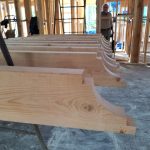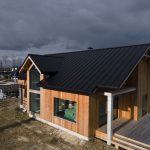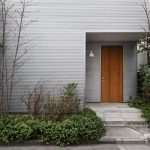Understanding What ADU Types Are Allowed in Pleasant Hill
If you are curious about what ADU types are allowed in Pleasant Hill, you are not alone. Accessory Dwelling Units (ADUs) are becoming an increasingly popular way to add living space, boost property value, or accommodate multi-generational families. While official city guidelinesultimately determine which ADU configurations are permissible, it helps to clarify the most common categories you might see. In this article, you will learn how typical ADUs vary in format, what to keep in mind when planning yours, and how to move forward with Pleasant Hill construction professionals who can guide you along the way.
Good news, even if the details seem confusing at first, Pleasant Hill has embraced a supportive attitude toward ADUs. Many homeowners find these dwellings an efficient solution for maximizing their lot space or improving long-term property flexibility. Because local ordinances can differ from broader California ADU regulations, you will want to confirm the current information with your city’s planning department or a seasoned contractor. Let us walk through the core ADU types often recognized across California regions, so you can better understand your options in Pleasant Hill.
Common ADU categories
Detached ADU
A detached ADU is a stand-alone unit from your main house. You might build this in a backyard or on another portion of your property. It has its own entrance, utilities, and living space in a completely separate structure. Since it is independent, you have flexibility in design, such as matching the look of your main home or creating a distinct style.
Attached ADU
As the name suggests, an attached ADU shares at least one wall with your main house. Often, homeowners convert an existing garage or build a side addition. This approach can be more cost-effective than a detached unit if you can tap into existing utility lines. It also preserves some privacy, while still keeping the main house and the ADU close together.
Interior conversion
An interior conversion repurposes space within your main dwelling—think an unused basement, large storage area, or attic. It is often the least intrusive ADU route, since you do not have to pour a new foundation. You might appreciate this solution if you want to keep modifications minimal. Just be certain local building and safety rules (like minimum ceiling heights and proper exits) are met.
Junior ADU (JADU)
A Junior ADU, or JADU, is usually below 500 square feet and is contained within your main home. It may share some amenities with the existing living area, such as a partial kitchen. JADUs are an intriguing choice if your available space is small or your budget is limited, but you still want to add an independent living area.
Working within Pleasant Hill construction standards
When considering an ADU, it is critical to understand how Pleasant Hill’s regulations work. California state law sets a broad framework, but local jurisdictions refine details. The city’s building department may have specific steps for permitting, site planning, and design approval. A few topics to keep on your radar include:
Setback rules
Many cities require a minimum distance between the ADU and your property lines or other structures. Pleasant Hill may have additional landscape requirements, such as specific fence heights or greenery.
Lot coverage
Depending on your property’s size, there will likely be a maximum allowable footprint for all structures combined. ADUs contribute to that total, so confirm you have enough remaining square footage for your plans.
Parking requirements
Some neighborhoods require on-site parking for your ADU. Others may waive this if you live near public transit corridors or meet unique conditions. Verifying these details will help you avoid permit snags.
Fire and safety codes
Your ADU design must include proper fire-rated walls, egress (exit openings like windows and doors), and pathways. In some areas, you might need sprinklers if you are building an attached ADU. These items add to project costs, so plan before you break ground.
Utility connections
You may need new or upgraded utility lines for electric, water, and sewer. While an attached ADU might share lines with your main home, a detached ADU often requires separate connections.
Because local details change over time, it is wise to double-check current requirements or talk with a knowledgeable contractor who specializes in pleasant hill construction. You can also ask about the best timeframe to start major work in the city, as regulations or weather can nudge your timeline.
How a local contractor can help
Navigating official regulations can feel overwhelming, but you do not have to go it alone. A reputable builder with roots in Pleasant Hill understands the nuances of local construction codes. For instance,Mazzamuto Constructionhas been part of the Martinez and Pleasant Hill communities for generations, offering home addition pleasant hill services along with a broad range of renovation skills. Even though the company’s site does not specify Pleasant Hill ADU guidelines, their deep remodeling and building background can help you with initial designs, feasibility checks, or introductions to city permitting offices.
Working with an experienced local contractor often speeds up the process:
Site evaluation
A contractor visits your property to confirm the best placement for an ADU. They factor in terrain, drainage, existing structures, and local requirements.
Design and plan drafting
Based on your goals, you will get recommended floor plans. This includes choosing whether a detached or attached ADU better suits your lot size, layout, and budget.
Permitting assistance
Contractors who frequently operate in Pleasant Hill can guide you on which documents to file. They may liaise with city inspectors to ensure a smoother approval process.
Construction management
Once plans are greenlit, your contractor coordinates materials, labor, and inspections. Having a single point of contact helps you stay on budget and schedule.
Finishing touches
From cabinetry to roofing, companies like Mazzamuto Construction often provide a variety of services in or near Pleasant Hill. So if you plan to add countertops, install flooring, or fully outfit your new space, it can be done under one umbrella.
Potential uses for your ADU
Beyond simply creating extra space, you might leverage an ADU in several ways. Since Pleasant Hill is a desirable area, an ADU could increase flexibility or even rental income (if that is allowed under local ordinances). A few popular uses include:
In-law suite
You can keep family close without sacrificing everyone’s privacy. Also known as a “mother-in-law unit,” this arrangement sets loved ones up in a smaller, self-contained living area. Spend quality time together, then let everyone relax in their own quarters. If that idea interests you, you might explore how to convert space into an in‑law unit in pleasant hill.
Rental unit
Depending on local ordinances, ADUs can often be rented out for additional income. This helps offset the initial construction cost over time. Be sure to check Pleasant Hill’s specific rules to confirm short- or long-term rental allowances.
Guest quarters or home office
You might use the ADU for occasional guests, or turn it into a quiet office space that sets work life apart from the main house. Many people find a detached office fosters better work-life balance.
Future resale value
In many California markets, properties featuring ADUs may command a higher asking price, since prospective buyers value the flexible layout. Even if you do not need extra space today, planning an ADU now can yield returns when you sell later.
Balancing wants vs. requirements
An ADU must meet city guidelines, but it should also serve your long-term goals. Before diving in, consider how you want to use the space five years from now. Are you planning a a in tandem? Do you need universal design touches for aging in place? The earlier you weigh these factors, the smoother your project becomes, and the less likely you will have to rework anything down the road.
If you are still unsure whether to build a detached, attached, or interior conversion, weigh each option’s pros and cons:
| ADU Type | Pros | Cons |
| Detached | Maximum privacy, separate living quarters | Higher construction costs, requires separate utilities |
| Attached | Often shares utilities, more affordable | Less separation of living spaces |
| Interior Conversion | Minimal new construction needed, uses existing footprint | Potential limitations on size or layout |
| Junior ADU (JADU) | Compact, cost-effective, great for small spaces | Typically under 500 sq ft, limited design freedom |
What ADU Types Are Allowed in Pleasant Hill
Ultimately, what ADU types are allowed in Pleasant Hill depends on the city’s up-to-date codes plus state directives. You will likely have several options, detached, attached, interior conversions, or junior ADUs. With thorough planning and professional help, you can find a design that meets your budget and goals. Confirm rules with Pleasant Hill’s planning department, and consider hiring a professional team like Mazzamuto Constructionto streamline the process.
Take the Next Step Toward Your Pleasant Hill ADU
Ready to explore what ADU types are allowed in Pleasant Hill and start building? Contact Mazzamuto Construction todayfor expert guidance on permits, design, and construction. Build the perfect ADU that adds value, space, and flexibility to your home.
Frequently Asked Questions
1. How to get an ADU permit in Pleasant Hill?
To get an ADU permitin Pleasant Hill, submit an application to the Planning Division, including required documents like site plans, blueprints, and fees. Ensure compliance with zoning codes and local building regulations before starting.
2. When were Pleasant Hill’s ADU regulations updated?
Pleasant Hill updated its ADU regulationsin 2020 to comply with state legislation. These changes made it easier to build ADUs by relaxing restrictions on size, parking, and permit processes, promoting affordable housing solutions.
3. How big can an ADU be in Pleasant Hill?
Size limits often depend on your lot size and local rules. While California law caps ADUs at 1,200 square feet in many cases, Pleasant Hill might have additional restrictions. Confirm specifics with city guidelines.
4. Can I rent out my ADU for extra income?
In many communities, yes—ADUs are often used as rental units. However, Pleasant Hill may have short-term or long-term rental rules that you need to follow. You should clarify whether any restrictions apply to your neighborhood.
5. How long does ADU construction usually take?
This varies based on project complexity, permit approvals, and labor availability. An interior conversion might take several weeks, while a detached ADU can span a few months. Planning thoroughly with a local contractor can keep your timeline realistic.
Key takeaways
- Proper research is essential.ADU guidelines can shift, so check with Pleasant Hill’s planning division for the most current rules.
- You have multiple ADU styles to consider: detached, attached, interior conversions, and junior ADUs.
- A contractor who specializes in pleasant hill construction can help explore your lot size, local regulations, and design preferences.
- Be mindful of parking, setbacks, and potential utility upgrades before finalizing your ADU plans.
- An ADU can serve many purposes, from an in-law suite to rental housing, and can enhance your property’s long-term versatility.




